Tides of change: Palau calls on ‘big brothers and sisters’ in the global effort against climate change
As Singapore looks to develop initiatives to deal with rising sea levels brought on by climate change, CNA visited the tiny Pacific island nation of Palau, where the president is calling on the global community to take urgent action before it's too late for his country.
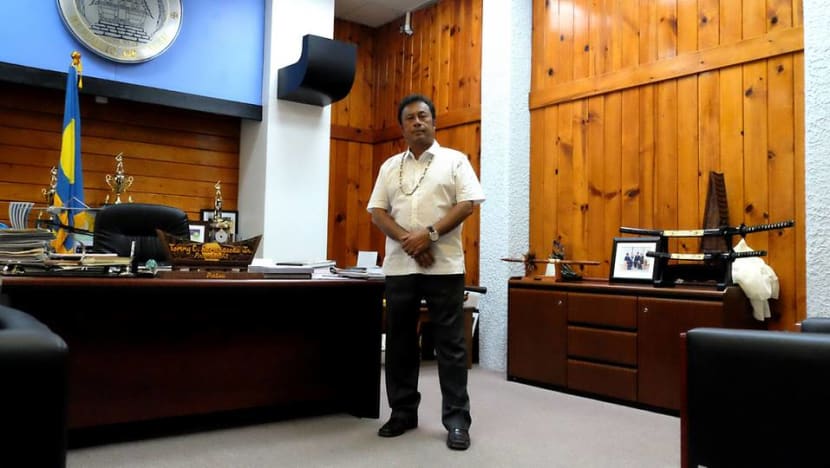
Palau President Tommy Remengesau has witnessed first-hand the effects of climate change. (Photo: Matthew Mohan)
KOROR, Palau: Undiscriminating, unrelenting, unstoppable.
It slices through swathes of land, carves out crevices, and finds only weakness.
It hammers on doors, cleans out homes, and finds only loss.
“(Typhoon) Bopha brought very strong wind,” recalled Palau resident Isabella Yano of the 2012 storm. “The water flowed under our house as we had elevated it with posts. But underneath it, we had put washer, dryer and freezer… They floated away.”
Facing the force of the category five super typhoon, others were not so lucky.
“Because their houses were near the water, some broke (apart) and some floated away,” Mdm Yano added. “We were also scared of the sea because the tide is always coming up ... The sea water (was) coming up so we plan to move our house up here.”
Less than a year later, Typhoon Bopha was followed by Typhoon Haiyan - which ravaged other parts of Palau.
Unlike some of its neighbours, Palau lies outside the typhoon zone, meaning it is supposed to bear less of the brunt of such storms.
But with the increasing ferocity of these typhoons coupled with rising sea levels and increasing ocean temperatures, it is clear the island nation now stands on the frontline of climate change, said President Tommy Remengesau.
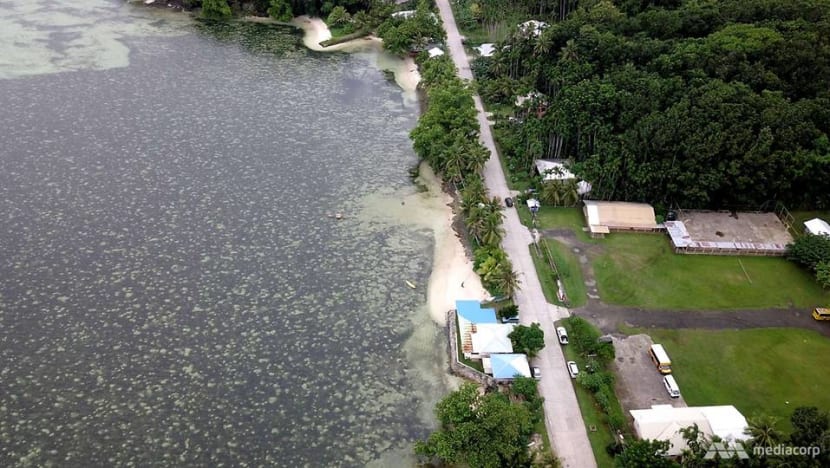
READ: Rising sea levels threaten homes on pristine paradise of Palau
READ: Palau calls on ‘big brothers and sisters’ in the global effort against climate change
And he is calling on others to join the battle.
“To solve the problem, it cannot be an individual effort, it's got to be a collective worldwide effort, international effort and it's got to be solved by the people who contribute the most to the problem,” he explained.
“We hope that the big brothers and sisters of the developed countries of the world will see that this is something that is a responsibility on all of us and everyone should do their part.”
What happens on the other side of the globe has serious consequences for Palau, said the country's ambassador to the United Nations Ngedikes Uludong, who is also the country's envoy for climate change.
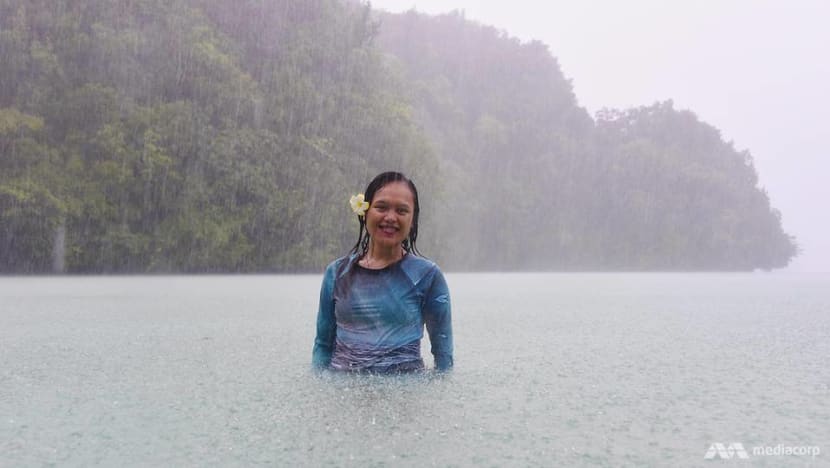
“When you’re talking about climate change in a global context, just because we’re small and we’re here doesn’t mean that we don’t feel the impacts from the other side of the world,” she said.
“So if you’re producing high carbon emissions on the other side of the world … on this side of the world, we feel the impact. So it behooves us to encourage the international community to take it seriously.”
TACKLING A ‘MORAL’ ISSUE
Palau is punching above its weight when it comes to tackling climate change.
Just three years ago, it became one of the first nations in the world to ratify the Paris climate agreement. The agreement aims to limit the global temperature rise to “well below” 2 degrees Celsius and to pursue efforts to limit the temperature increase even further to 1.5 degrees Celsius.
READ: Tides of change - From fighting against the seas to living with it - How the Netherlands kept itself dry
READ: Tides of change - Amid rising sea levels, the Dutch float new initiatives with farms and more homes on water
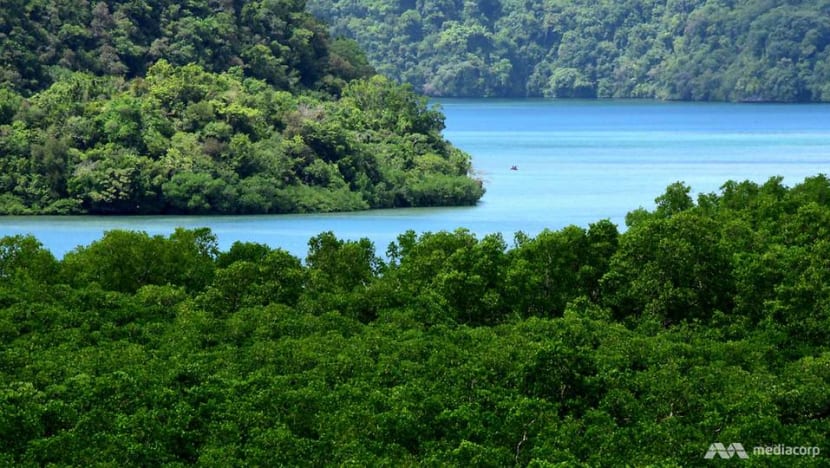
The United States has since withdrawn from the pact, while Russia is yet to formally ratify it despite being one of the 197 countries who signed the agreement.
Said Mr Remengesau: “The developed nations of the world who contribute greatly to what causes climate change or what causes global warming, they need to look at this as a moral issue, as a world sustainable issue and really at least stick to the targets enunciated by the Paris Agreement.
“Even the Paris Agreement like you know, scientists have said that it doesn't go far enough but at least it's a start.”
There has also been a concerted switch towards the use of clean energy as the island nation aims to generate 45 per cent of its energy from renewable sources by 2025.
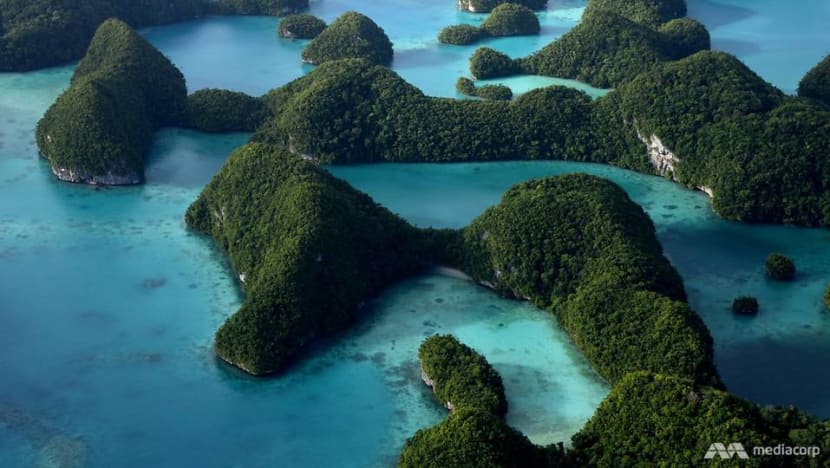
“We're definitely promoting renewable energy - even though we contribute the least to the causes of climate change,” said Mr Remengesau.
“We hope that by doing so, our developed partners at least understand that we're doing something in a small scale but we're addressing the very problem that developed countries are contributing to the emissions of harmful gases in the atmosphere.”
The island nation has also been active in conservation - setting up the world’s first national shark sanctuary a decade ago and in 2015, designating 80 per cent of its maritime territory as a fully protected marine reserve where activities such as fishing are not allowed to take place.
SAVING FOR A RAINY DAY
In the meantime, Palau has to come to grips with an unfamiliar reality.
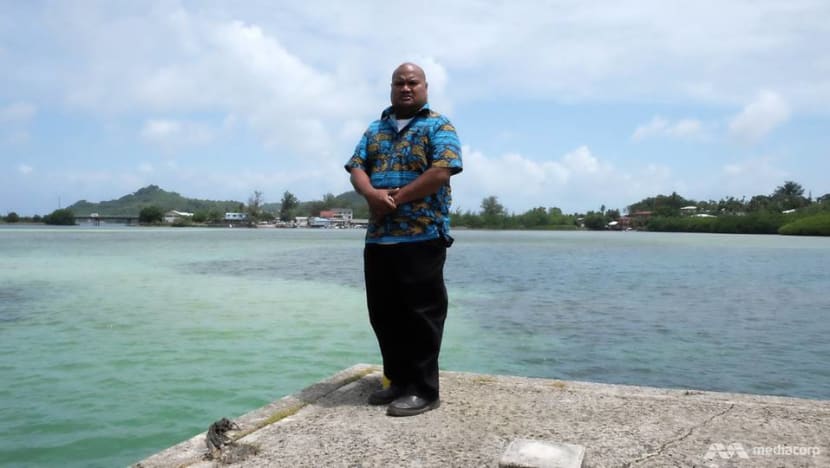
READ: Fending off the floods – 5 things to know about polders and how they could work in Singapore
This has seen shifts in the weather and seasons, said Palau’s minister of natural resources, environment and tourism Mr F. Umiich Sengebau.
“Fishermen understand the calendar that there are two seasons - basically, you have six months of easterly winds and six months of winds coming from the west,” he explained.
“That’s not very predictable nowadays … That unpredictability is certainly having an impact on the environment, so what the fishermen know in terms of seasons for fish and whatnot has also eroded over the years. When you ask them when’s a good time to harvest these fish, they say: ‘We don’t know anymore’”
For those involved in agriculture, there is now less of a delineation between planting and harvesting seasons.
“It’s changing ecosystems to the point where the traditional knowledge will become less and less relevant,” added Mr Xavier Matsutaro, head of Palau’s office of climate change.
And with the threat of intensified typhoons, the Palauan government has its work cut out.
“The typhoon impact is devastating because it kills the corals and destroys the structures. It flattens everything and it takes everything,” explained chief executive officer of the Palau International Coral Reef Centre Dr Yimnang Golbuu.
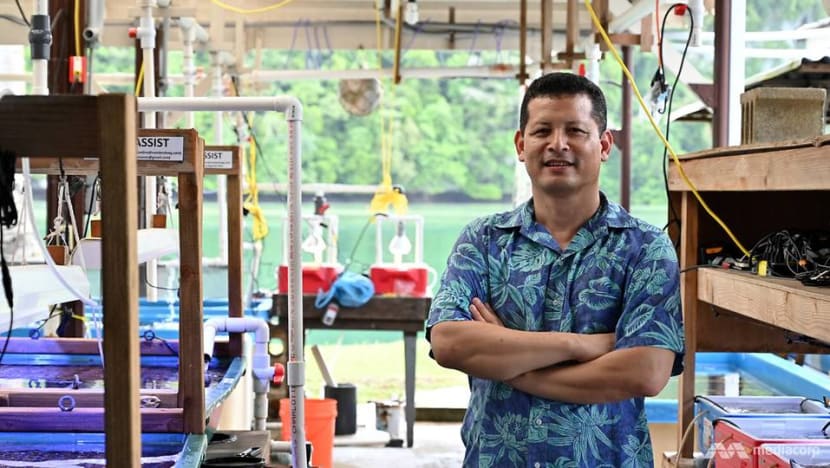
“The prediction is not that we’ll get more typhoons but we’ll have more intense extreme events.”
“We used to be proud that we were outside of the typhoon belt - sometimes we were accused of ‘manufacturing’ storms and sending them off to other places because we were really not affected,” added Mr Remengesau.
“Now we are getting our own share of natural disasters and natural storms. And that's not a good thing, because one storm can negate or can destroy whatever investments we've built upon and all the resources we have dispersed ... So when we do our national budgets now, we automatically set aside funds for a rainy day, literally."
Palau is also working with the Asian Development Bank to set aside funds which would be available to be withdrawn immediately, should a storm hit.
Said Mr Remengesau: “We're preparing ourselves for those kinds of scenarios, but again, one storm can wipe out everything so we're always keeping our fingers crossed.”
For now, the Palauan population has remained resilient.
“Most of the people live in the coastal parts of the urban area in Palau … that’s their daily life - they move their tables, they move their couches,” said Ms Uludong. “The impacts have increased and … the community is very resilient in living with it.”
Take Mdm Yano, who moved to higher ground in the village of Ngiwal three months after the 2012 storm.
But even now, she is regularly reminded that she is never too far from the water.
The retired schoolteacher has a number of taro patches which are flooded by sea water during particularly extreme high tides.
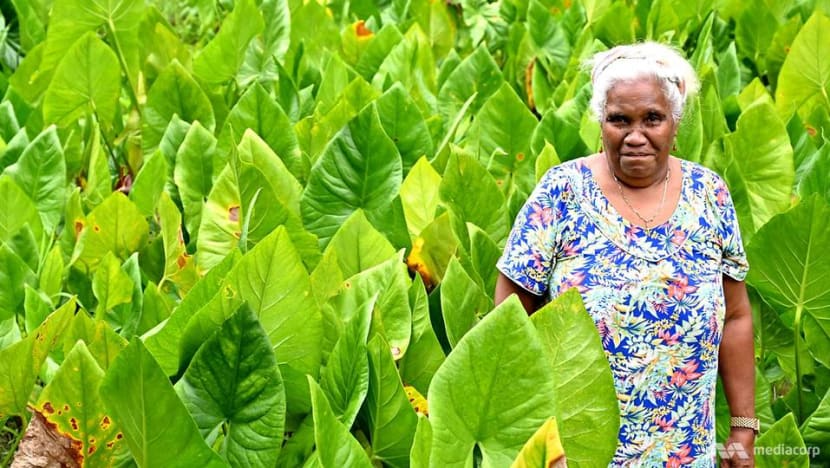
And when the tides rise, the taros die.
Mdm Yano now resorts to using parts of a corrugated tin roof to block the incoming tide.
“I have another taro patch close to the sea so when the tide is high, it all comes inside,” she added. “That one is a very open place, so it’s a bigger problem. There’s a beach and the water is coming in ... I’m just going (to have to) leave it.”
Clearly, the tentacles of the tide are never too far away.
And so the message to the world is as clear as the unspoiled waters off Palau’s coasts.
“In every opportunity in an international arena, we want to tell the world this is impacting (us), this is close to home,” said Mr Sengebau.
Echoed Mr Remengesau: “We are on the frontline and if we don't do something to stop the problem, eventually the frontline will extend to other people and that's the sad part. It's going to involve more and more (of the) world's population.
“We've gone past the time of debating or describing the problem, it's really time to stop the problem, not continue to describe it.”














